
(There will be time enough to consider the challenges and opportunities before us as the New Year approaches. For now, it is time for God, family, and tradition.
When I was a kid, Mom and Dad would wake us up around midnight, then we would sit on the floor around the tree and Dad would read the Christmas story from Luke. Then Mom would go off to make hot cocoa while Dad distributed all the presents, one by one.
Twenty-two years ago, a great division came upon my family. We had warring camps estranged from each other. In the fall of the next year, I wrote Dad a letter, I began the letter with a proclamation from Isaiah: “The people in darkness have seen a great light.” I proposed a detailed ritual of reconciliation, almost a liturgy that, if he agreed to, would be entirely performed on Christmas Eve. First, they needed to invite us all over for Christmas Eve. Part of the ritual included his reading of the Christmas Story from the Gospel of Luke and his handing out of presents. Now my Dad loved to give his opinion on everything (I come by it honestly), but on serious things, he played everything closer to the vest than anyone I have ever known. He made no response to the letter, except to invite each of us for Christmas Eve. And we all came.
After the reading, he began to distribute presents. Reading who the first one was to, he handed the present to me. A little taken aback I noted that it was for my sister. “Well give it to her, then,” he replied. With every gift, after reading off the name, he handed it to me to give to the recipient. It was the single amendment he made to my proposed ritual. I’m holding back tears right now at how he subtly honored me and committed to it all. And we were all reconciled. Oh, we had squabbles aplenty afterward, but a reset button had been pushed and it was as if that terrible year had never happened.
Mass was full, for me, of memories and reflections of Mom and Dad. Mom was a fabulous baker and candy maker. Her hot cocoa was nice, but nothing special – to anyone else. But by gum, it was Mom’s hot cocoa. What I would give to have her offer me a cup tonight!
Again, I offer my traditional story at Christmas, “Joseph’s Way.” I’m thinking of Dad in it tonight. Unlike Joseph, he had an opinion on everything and spoke it loudly. Like Joseph, on serious matters, he said next to nothing about why he did certain things – but revealed who he was by doing them.
May your Christmas be glorious and may the spirit of the Holy Family take up residence in your home tonight and always – CJ)
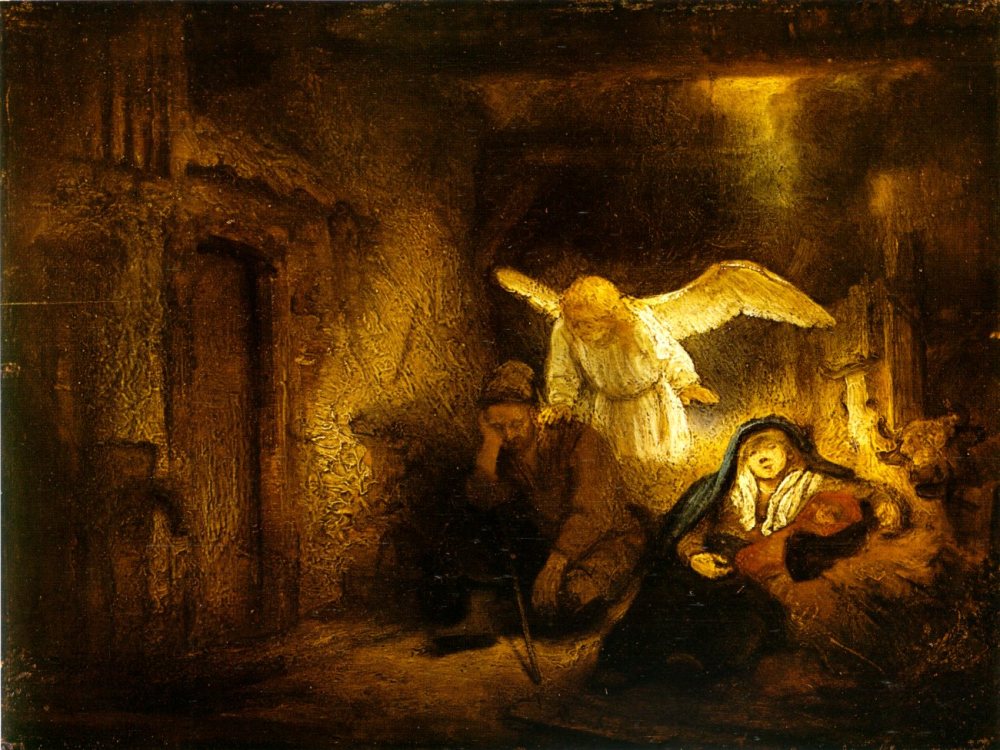
(I wrote this little story way back in 1996. I love to post it at Christmas. I hope you enjoy it. – CJ)
By Charlie Johnston
The true son of true God was
adopted by a man, that all men
might truly be adopted by God.
Taking on our humanity He gave us a
share in his divinity. And so, we are
become a new race – sons and
daughters of the living God.
I: In His Father’s Tent
“Why must the girls marry the old men? Most like the young men better.”
Jacob’s right hand twitched; the chisel in it jumped and nicked the fleshy pad in his left. His son’s voice startled him. Save for the scraping of the wood, the tent had been silent all morning. He looked up from his bench and glared at his son. No use. Joseph was planing boards at the far end of the tent, his back to the father. Jacob’s beard lifted in wry amusement. His enigmatic son says something interesting – and does it with his back turned. How appropriate.
“Are you thinking you’d like to be married, then?” the father asked, his lips pursing to suppress his mirth.
Joseph kept planing.
“No, Father,” he said. “I just thought…well, we all laugh and play together as children, then the girls are gone. They enter the house of an elder and we don’t speak any more. It must be…fearful. And maybe lonely for them.”
Jacob was thunderstruck. How to respond to this outpouring?
“You’ve an eye for beauty, Joseph. Perhaps one of your childhood friends will bear a daughter who will be ripe when it is your time.”
Jacob knew immediately it was a silly, stupid thing to say, but he could think of nothing else.
Joseph was silent. There were many boards yet to plane today. Jacob watched his son’s back for a moment, then took up his chisel and turned back to his work. It was not until late in the day that the raspy rhythm of chisel and plane was broken again.
“I saw a woman stoned,” Joseph said.
Jacob looked up, amazed again, but wary now. “An adulteress?” he asked.
“Yes.”
“That is our law, handed down from Moses.”
“It was horrible,” Joseph said, his back still to his father. “She was all purple and bleeding, pleading for mercy. But there was no mercy there. Can this be what God intends?”
He turned to his father, eyes full, a hint of tremor on his lips. His hands kept to the wood.
Jacob’s left hand lay flat on the workbench, his right clenched a fist around the chisel. His eyes were steady and fixed on his son.
“Who was she taken with?” he asked.
“A friend of her childhood. She was barely 14.”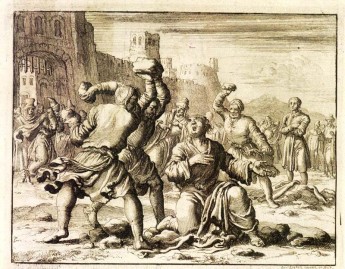
Understanding dawned. The father closed his eyes and lowered his head. When he lifted it again his gaze was penetrating and clear.
“Did the three of you once laugh and play together?” he asked his son.
Joseph turned back to his work. He had overplaned this board. It was ruined. Jacob saw it, too.
“Gather the wood scraps together now and take them to your grandfather,” Jacob said. “It will be cold tonight.”
“But Father, I have ruined this board. I must…”
“You must take the wood scraps to your grandfather.” Jacob’s voice was low, even gentle, but it compelled obedience. “The sun will soon set. There will be time enough tomorrow to correct your errors.”
The father turned back to his work as the son gathered together the scraps. Jacob worked late that night, pausing occasionally to examine with wonder the single misshapen board his son’s meticulous hands had ever formed.
II: The Coming of the Ark
Until his world crashed, Joseph had been preoccupied with a fantastic dream. Six times it had come, every third night these last few weeks.
It always began in a tent; a tent like his father’s, but not his father’s. Joseph was alone, doing detail work with the chisel – the sort his father always did. It was magnificent work; impossibly rich ebony, finely filigreed and ornate, more beautiful and delicate than any he had ever seen. He was lost in the work, intent on each detail when the tent began to fill with a brilliant, gently pulsing light. Turning around, he looked into the eyes of a lean, sinewy man of about 30 (his own age) who, nonetheless, bore the flowing, white beard of a patriarch. He somehow knew this to be Moses. Behind Moses was a box; the sort in which a queen might keep her most precious jewel. It was simple, yet beautiful: olive wood rubbed and oiled, inlaid with a pale blue ivory. Joseph went to it and knelt in wonder, astonished at this unlikely source of bright, throbbing light that yet did not blind. Unable to take his eyes from it, he asked, “Is this the Ark?”
“Guard it well,” Moses replied. Then Joseph would awaken. The dream should have come again last night. It might have, had Joseph slept at all. Mary came instead. It was late afternoon and Joseph was surprised to see her. It was not yet time for her to come into his house so he seldom saw her alone. She delivered the blow with a gentle, almost playful, smile.
“I am with child,” she said.
Joseph was sure he had not heard her correctly but was so confused he could say nothing at all.
“I am with child,” she repeated.
His mind raced. How can this be? Why is she smiling? Is she taunting me? No, she never taunts. He finally asked, “Who is the father?”
“Pray and you will know,” she replied, and then was gone. Joseph had never felt so alone, so forsaken, so completely and utterly crushed. And yet…that smile. Mary was not upset, certainly not frightened. In truth, she seemed joyful. How could she be joyful about such devastating news?
Joseph had long ago dismissed the idea of marriage. After witnessing a stoning he had dedicated himself, body and soul, to God, in reparation for all those without mercy and as an offering for all those in need of it. He would never have thought to court Mary. She was the most beautiful, graceful and refined woman in all of Galilee. Except for yesterday, she had never failed to bring a measure of joy to everyone she encountered, whenever she encountered them. There was an air of mystery about her; wisdom and peace flowed from some secret place in her that Joseph doubted anyone had ever penetrated. Yet she could be bold. It was Mary who told Joseph she wanted him to be her husband. After his initial shocked wonder, he delicately explained to her that he had entirely dedicated himself to God.
“So have I,” Mary replied almost gaily – and that was that. They were betrothed.
Joseph wondered what God could possibly intend for him with this humiliation. Though he had felt called from his youth to be a husband and father, he had renounced it for the sake of mercy, putting it entirely out of his mind. When Mary came to him, he thought surely God had sent her. How likely was it that any woman, much less this magnificent woman, should both love him and share his mission? And now this. What should he do?
A vision of Mary, purple and bleeding, flashed through his mind, filling him with horror and revulsion.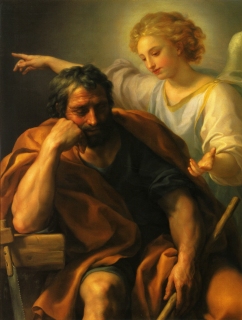
He would not accuse her. He would never accuse anyone. But he could not take her into his home. A quiet bill of divorce – that was surely the answer. He would appear to be the scoundrel and she might have difficulty finding a husband, but she would not be put to shame.
Preparing to make his evening prayers, Joseph remembered Mary’s smile; her confidence and joy. So instead of asking why, he cried out, “O God, my God, what do You intend for me in this horrible situation?’
Nearby, the Angel of the Lord waited for sleep to overtake Joseph. The Angel had a message of supreme importance; news that what Joseph thought was an ending was, in fact, a beginning.
III: God With Us
Although he was glad to have found it when and where he did, Joseph would long be troubled by the memory of the wood.
It irritated him to have to travel when Mary’s time was so near. He found no work along the way; his tools were just an extra burden for the donkey. When Mary’s time did come, he was prepared. He had expected it to happen on the road. He had not expected to be unable to find a place for them to stay. Joseph was beginning to think the child would be born in a field when they came upon an old cattle shed. Joseph could not see how it kept the cattle in; it certainly would not keep the elements out. He had thought to use a manger as a makeshift cradle for the child, but there was none. Piles of hay were scattered indiscriminately about the floor. His heart sank. For a moment Joseph was overwhelmed by his own inadequacy – but only for a moment. Mary’s need was urgent.
Joseph looked around the shed and spied a pair of warped boards lying at the rear. He was filled with both gratitude and dismay as he examined them. The grain was fine; there were no knots. The wood was flawless. Only the workmanship was shoddy. The tools would prove useful, after all. Joseph had never worked at such a reckless pace. It took him scarcely half an hour to fashion a serviceable cradle. At that, he finished just in time.
Mary was gasping; the child would wait no longer. Joseph turned the full force of his attention on his wife. He took control with confident ease. The delivery was uncomplicated (thank God for small favors!). He cleaned the child and put him in Mary’s arms, then gathered together some hay and sticks to cover the holes in the roof. Finally, he was finished.
“You’re a good husband and father,” Mary murmured, handing him the boy.
Joseph’s brows lifted. “How so?” he asked.
“Everyone sees the blessing in honor and prosperity. Few can accept the blessing of humiliation and hardship.”
Joseph nodded. “The lower the net is cast, the more it gathers.
Heaven is too high for us. I was thinking it must have pleased God to cast his net low tonight.”
“Why, Joseph, that’s profound.”
“Are you so surprised?” he asked, a wry smile curling his lips.
“The things you do are always profound, but you seldom speak of why you do them.”
They rested in quiet contemplation, cuddling their child and nuzzling together. The cattle lowed gently beside them.
After a while, Mary said, “That’s a lovely cradle you made.”
Joseph regarded it thoughtfully. “It will make a fine manger when we leave. The wood for it should not have been lying there, though.”
“Oh, Joseph, not everyone is as orderly as you.”
“That’s not it,” he said.
Mary looked at him quizzically.
“Were it not for the cattle, I would have thought this place abandoned,” he explained. “But that’s not it. It’s the Romans. They love to collect such boards for use in their instruments of torture and execution…”
Joseph sat up straight, suddenly alert. Someone was outside the shed. Were they to be turned away from even this place? A boy stepped into view – a shepherd, then two of his companions. Joseph was puzzled.
“Please, sir,” the first boy spoke for them all. “An angel told us the Messiah is born tonight…and that we could see him here.”
Joseph and Mary glanced at each other in surprise, then Joseph smiled and bade the shepherds enter. They knelt before Jesus, who slept contentedly in his mother’s arms.
“A most approachable king, this son of mine,” Joseph thought, surveying the scene. A bit of Scripture bubbled into his head: God’s ways are not man’s ways. This Messiah would surely startle and challenge Israel’s expectations of what God’s ways are.
IV: After the Temple
“I saw a woman stoned yesterday.”
Jesus’ voice did not startle Joseph. His son had been working with furious intensity all morning – always prelude to an outburst. The father paused to look in his son’s direction. The muscles in Jesus’ back rippled with rhythmic resolve and the shavings flew like sparks. At this rate he would finish two or three days work before the sun had set. Every board would be perfect, too. It was a continuing marvel to Joseph that his son should be both so passionate and so precise. The father resumed his carving, but kept his eyes on the son. Jesus would elaborate soon enough. It was always best to wait for him.
“I could have stopped it,” Jesus said.
“Why didn’t you?” Joseph’s voice was measured and calm.
“It is not my time,” Jesus replied. “Now is a time for obedience and restraint. I can master nothing until I have mastered these.”
“Even at the cost of a woman’s life?”
Jesus stiffened, his back straight now. The plane trembled in his hand, troubling the wood no longer.
“She lives,” he said softly. “The gates of heaven will open for her. But this is not what my father intends.”
“What, then,” Joseph pressed. “…that sin should continue?”
Jesus whirled around, eyes flashing. His voice was tight with suppressed fury.
“No,” he said. “That mercy should abound. All have received it from above. It will go hard for those who are miserly in giving what they, themselves, have received in abundance.”
Jesus’ anger suddenly gave way to stunned wonder. Joseph’s eyes were radiant with joy, but his lips were pressed tightly together and his cheeks were wet with tears. Wonder became alarm when Jesus saw the deep gouge in the mantle his father had been working on. Jesus had never seen him like this. He went to his father.
“I can fix that for you.”
Joseph shook himself, as if waking from a dream, and gazed at the mantle. Tilting his head in curiosity, he looked back at his son.
“How so?” he asked.
“I can make it take any shape I want.”
Joseph’s eyes narrowed. “Have you done this with your work?”
Jesus’ face flushed. He lowered his head. When he spoke, it was scarcely a whisper. “No, Father…just some sticks in the field.”
Joseph pushed up from the bench. He began to pace, stroking his beard in thought. “I see,” he said. “Why work at all then? Why not just take a stick and grow it into a house?”
The pacing stopped. Joseph looked directly at his son. Jesus regarded his father with dismay and confusion. He tried to speak, but all he could muster was a dry, choked rustle.
“I’ll tell you why,” the father resumed. “Because it is wrong. You are a man, Jesus. You did not become such to cover over shoddy work. That is a mark of lowness in a man. If you are to be lifted above that, you must always work the wood properly. No shortcuts – ever.”
Jesus’ eyes met his father’s stern, loving gaze. For a moment the son remembered having chosen Joseph from all eternity. He pushed the memory away; his father would not be pleased. Now his own eyes filled with tears. Joseph was a worthy man.
“Yes, Father,” he assented.
Joseph clasped the boy’s shoulder in the semi-embrace favored by reticent men. Father and son worked together in silence that afternoon, savoring occasionally the comfortable communion between them.
V: His Father’s Way
The Baptist was shaken to see Jesus standing before him, waist deep in the chill water of the Jordan River.
“I need to be baptized by you, and yet you come to me,” John said.
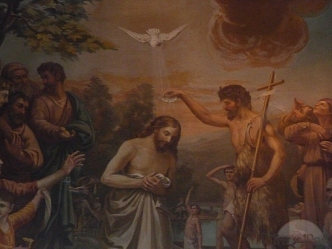
Memories of Joseph flooded Jesus’ mind. Smiling gently, he told John, “Allow it now. It becomes us to fulfill all righteousness.”
The Baptist plunged him into the water. Rising, Jesus shook his hair and beard, then departed for the desert.
His father was well pleased.
*******
In my Father’s house are many mansions…
I go to prepare a place for you – John 14:2

If communication goes out for any length of time, meet outside your local Church at 9 a.m. on Saturday mornings. Tell friends at Church now in case you can’t then. CORAC teams will be out looking for people to gather in and work with.
Find me on Twitter at @JohnstonPilgrim
The Corps of Renewal and Charity (CORAC)
18208 Preston Rd., Ste. D9-552
Dallas, Texas 75252


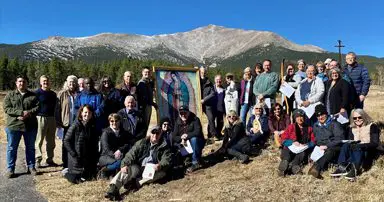




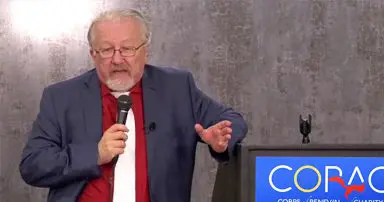
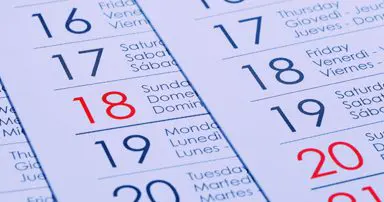











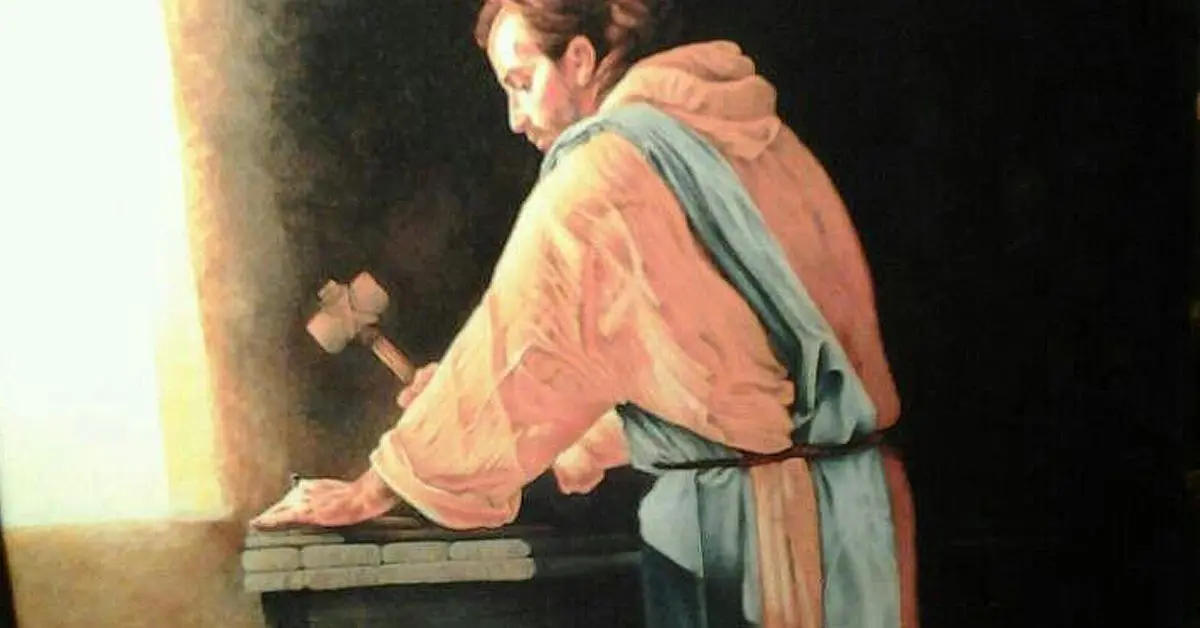



0 Comments